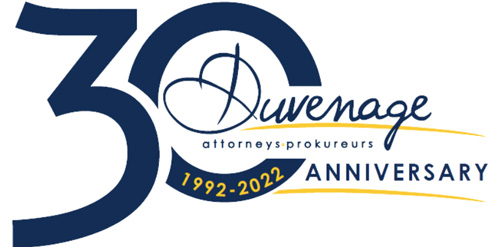What does the Voetstoots Clause mean to the property of the Seller and the Purchaser?
A well-known term that every seller and Purchaser of immovable property may have encountered is that of the voetstoots clause. This means that the product, in this context, the immovable property is sold “as is” or “as it stands”.
Patent and Latent defects
There are two types of defects:
- A patent defect is a flaw that is not hidden and can be identified easily upon reasonable inspection; and
- A latent defect is a fault that would not be readily revealed by a reasonable inspection of the property being sold.
A latent defect cannot be seen upon ordinary inspection of the property as opposed to a Patent defect that can be clearly identifiable on ordinary inspection of the property. The voetstoots clause shields the Seller from incurring liability in respect of both latent defects and patent defects. There are however certain qualifications to this in respect of latent defects.
This means that the Seller is in fact liable for a latent defect regardless of the voetstoots clause, if she/he knew about the defect in the property and omitted to inform the buyer. Such omission is almost tantamount to fraud. However, the onus is on the buyer to prove that the Seller knew of the defect and did not disclose it. Contrastingly, if the defects are brought to the attention of the Purchaser, the Purchaser cannot go back and claim from the Seller.
In conclusion, it is suggested that when the Seller wants to sell his/her immovable property privately, he/she has a duty to disclose all the defects of the immovable property that he/she is aware of. The Seller could further mitigate potential liability by attaching a condition report to the contract of sale and by setting out the quality of the property as well as listing all the defects thereof. The Purchaser also has the duty of properly inspecting the property, as the condition report is not a warranty to the Purchaser. The Seller may dispute that he/she truthfully did not know of a defect and consequently, did not list the defect. The Purchaser is not barred from outsourcing independent professionals to properly inspect and ensure the safety of the property.
For more information on Voetstoots Clauses, buying and selling of the property, please do not hesitate to contact Duvenage Attorneys and our team of Conveyancers will gladly assist you.





